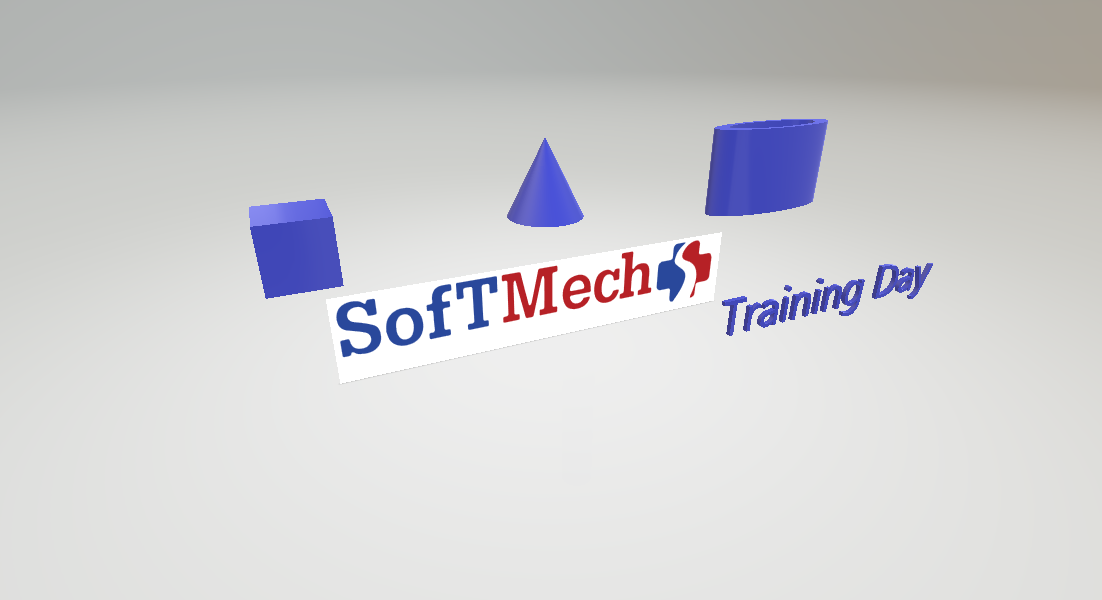Training Programme
SofTMech Training Programme
The SofTMech training committee and the wider SofTMech leadership organise a series of training events for our PhD students and PDRAs. These events are also open to members of the other EPSRC Maths-in-Healthcare centres and our SofTMech partner Universities. Events will run in a hybrid format to allow online participation. In order to put training into practice we will also organise competitions. The Training programme will also include training events run by our partner institutions to which our PhD students and PDRAs are invited (see POLIMI Training event)
These events take one of two forms:
Large Scale Events: include conferences and workshops, and spanning from a half day to several days. Previous/upcoming large scale events include:
Small scale (informal) training events: Previous/upcoming small scale events include:
- Competitions: Puting your training into Practice
Early Researcher Career day 24th Oct. 2023
An Early Career day was held on Tuesday 24th October at the Advanced Research Centre at the University of Glasgow.
Highlights of the day can be viewed on the slide show and video.
Talks at the ECR Day
Figure Making Workshop
The workshop will give an overview of some tools for making scientific
figures, and the various points to think about when using figures to
communicate scientific ideas. Some concrete examples will be
demonstrated (gnuplot, matplotlib, Matlab amongst others for example).
POLIMI PhD Course: An Introduction to Nonlinear Solid Mechanic
The course, open to all the interested PhD students, will be delivered online by Anna Pandolfi in the period November 14-November 28, 2022. View programme via link.
What happened at the PhD Poster Competition on the 31st May
The event was an in-person Poster competition open to PhD students from SofTMech and CMALS. 28 people registered for the event; 17 presented posters.
After two years of the pandemic this event gave a valuable opportunity to at last ask questions in person, for discussion and perhaps just as importantly to meet some colleagues for the first time. Students participated in the event from the University of Glasgow Schools of Mathematics and Statistics, Biomedical Engineering, Ultrasonic Engineering and Computational Mechanics. Students came from the University of Strathclyde departments of Mathematics & Statistics and Biomedical Engineering.
Prior to the event the students arrived early to set up their posters. The event was opened by Dr Sean McGinty, Director of CMALS. A series of 1 min flash presentations, where each student had to give an overview of their poster by displaying a maximum of 2 PowerPoint slides, set the scene for the poster viewing. One of the students even gave directions to where his poster was; it worked as he finished 2nd !
The posters were judged by a combination of a panel of members of staff and also by the students themselves, who were each allowed one vote for their favourite poster. The standard of posters was high across the board. Certificates and vouchers were awarded to the best three posters.
Prize Winners
1st Prize: Tahani Al Sariri
Hyperthermic temperature and interval induced by magnetic nanoparticles transport in vascularised tumours
2nd Prize: Yuzhang Ge
Gaussian Process for Predicting Left Ventricular Displacements in Diastole
3rd Prize: Alistair McQueen
Computational modelling reveals an intricate interplay between drug release rate and dose on restenosis
Thanks go to the panel of academics for judging the posters, the library for turning around the printing of the posters, catering for the excellent scones, and all the attendees.
We hope the experience of this event will help all the students as they progress in their careers.
.................................................................................................................
Attending an academic conference and networking
Attending an academic conference and networking: 24.03.22
Our first informal training event discussed academic conferences, covering:
- what actually happens at an academic conference?
- what can I hope to get out it?
- how do I network effectively?
The event also included a practical exercise on preparing an elevator pitch for networking with senior academics.
A recording of the event can be accessed from the link on the right hand side of the screen.

SofTMech Training Day 28.01.22
Mon, 31 Jan 2022 12:21:00 GMT

TRAINING DAY JANUARY 8th 2021
Mon, 23 Nov 2020 10:54:00 GMT
The Results of the SECRET Competition are in:
The day will finish with a conference dinner
Welcome
Method presentations by each of the three top-ranked participants
Presentation of our assessment criteria
Award ceremony
Open discussion about lessons learned from the competition, covering the computational inference methodology, assessment criteria, and organisation of future workshop. We would also like to discuss a draft manuscript on the competition for potential publication, on which each of the top-ranked candidates will be included as a co-author.



